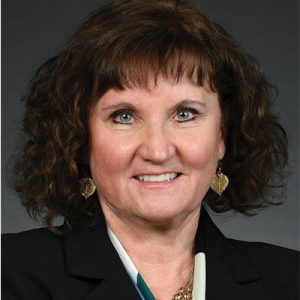By Julie Trent, Senior Attorney, Coan, Payton & Payne, LLC
Important Paid Sick Leave Requirements Under Colorado’s Healthy Families and Workplaces Act (“HFWA”)
With the COVID-19 pandemic raging, the Colorado Legislature passed the Healthy Families & Workplaces Act, CRS § 8-13.3-401, et. seq. (the “HFWA” or the “Act”), went into effect on Jan. 1, 2021. The law requires employers to provide paid sick leave to their employees.
The far-reaching changes set out in the HFWA affect most Colorado employers. Employment manuals and policies — even “pro-employee” policies — are likely in violation of at least some of the provisions set forth in the HFWA and should be carefully reviewed and revised to ensure compliance. This article sets forth some of the major requirements of the HFWA. For specific questions or issues, please contact the author.
First, the HFWA requires that employers with sixteen (16) or more employees provide paid sick leave to all full- and part-time employees in 2021. Beginning in 2022, all employers must do so, regardless of size.
Second, the HFWA requires employers to provide no less than forty-eight (48) hours of accrued paid sick leave per year for full-time employees and a prorated amount for part-time employees. Accrual requirements are strict. Employers must allow accrual of paid leave to begin on the date of hire (i.e., no more waiting periods for accrual of paid leave to begin). The Act also requires a minimum of one hour accrued for every thirty hours worked, up to the required forty-eight (48) hours of paid leave.1 Employers must allow 100% of any accrued and unused paid sick leave to be carried forward into subsequent years. However, employers do not have to “payout” accrued but unused sick leave at the end of each year or upon separation or grant an employee more than 48 hours of paid sick leave in any given year (except in the case of a public health emergency, 2 as discussed below).
Under the HFWA, employees may use paid sick leave for their own or a family member’s3 need to seek care for:
- a mental or physical illness, injury or health condition which prevents them from working;
- a medical diagnosis, care or treatment of that condition;
- preventative medical care; or
- a medical or mental health condition or injury resulting from domestic abuse, assault or harassment, counseling, use of services from a victim services organization, or time to relocate or seek legal services due to the abuse, assault or harassment.
Paid sick leave may also be used if, due to a public health emergency, a public official has ordered the closure of the employee’s place of business or the school or care center of the employee’s child and the employee needs to care for their child.
There are numerous provisions regarding how an employee may request leave, procedures an employer may implement to address leave, and how accrual and use of the leave may occur. For example, employers must allow employees to use sick leave in no more than hourly increments, employers cannot require an employee to find a replacement worker to use the leave, and employers may require “reasonable documentation” if an employee needs four (4) or more consecutive days of leave unless the leave is requested pursuant to a public health emergency, in which case documentation may not be required.
Third, if a public health emergency is declared, in addition to providing the forty-eight (48) hours of accrued paid sick leave, employers must provide an additional eighty (80) hours of paid sick leave for full-time employees and a prorated additional amount of hours based on a 14-day work period for part-time employees. Employers can count accrued, unused, paid sick leave towards the additional eighty (80) hours. This “supplemental” paid sick leave may be used by an employee to self-isolate or care for themselves or a family member due to the diagnosed illness that caused the public health emergency, to self-isolate or care for themselves or a family member if the employee/family member has symptoms of such illness, to seek medical diagnosis, care or treatment of that illness for themselves or a family member, or to seek preventative care regarding that illness for themselves or a family member.
It should be noted that employees are only entitled to one supplemental paid sick leave of up to eighty (80) hours per public health emergency. So, for example, if an employee used eighty (80) hours of paid sick leave in 2020 because they had to care for a spouse with COVID-19 and months later — in 2021 — they are diagnosed with COVID-19, the employee is not entitled to the eighty (80) hours of supplemental paid leave again. However, the employee would be entitled to 2021 accrued paid leave, up to forty-eight (48) hours.
Additional requirements of the HFWA include the employer maintaining records regarding hours worked and paid sick leave accrued and used and posting a notice to employees of their HFWA rights. This requirement can be met by posting a Colorado Department of Labor and Employment poster (specifically, the Colorado Workplace Public Health Rights Poster: Paid Leave, Whistleblowing, & Protective Equipment poster) in an “easily accessible” place.
Based on the numerous requirements and restrictions briefly (and necessarily incompletely) described above, many employers may be in violation of the HFWA already. Even employers who already meet the minimum paid sick leave hourly requirements, many of the “how” and “when” requirements may conflict with employers’ current policies. All such policies should be reviewed and revised
- It should be noted that the HFWA provides a “floor” for paid sick leave and specifically encourages employers to provide more paid leave if they are able and willing to do so.
- A “public health emergency” is defined in the statute as an act of bioterrorism, pandemic influenza, epidemic caused by a novel and highly fatal infection agent, or highly infectious illness or epidemic or pandemic potential for which an emergency is declared by a federal, state or local public health agency or a disaster emergency declared by the governor.
- A family member is broadly defined as an immediate family member, a child/person to whom the employee stands, or stood, in loco parentis, or a person for whom the employee is responsible for providing or arranging health care, who needs the employee’s help in getting the listed care.
Julie Trent is a senior attorney with Coan, Payton & Payne, LLC. She practices in all areas of general commercial litigation and employment law, assisting many types of businesses and financial institutions in a wide range of cases.








